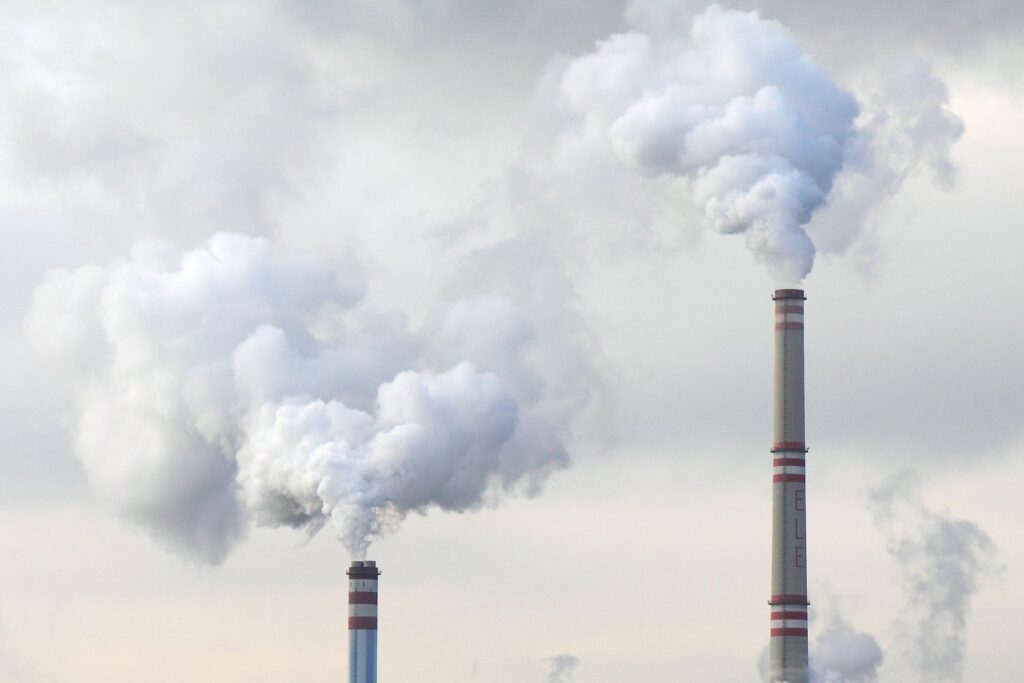A new report reveals that over half of global CO2 emissions in 2023 came from just 36 corporations, with state-owned companies leading the surge despite worsening climate impacts.
From 2022 to 2023, emissions from the world’s largest oil, gas, coal, and cement producers increased, with over 50% of these emissions coming from just 36 high-emitting corporations, according to a new report by Carbon Majors.
In fact, according to its data, 93 of the companies in the Carbon Majors database increased their emissions in 2023, including 50 investor-owned companies.
Interestingly, state-owned companies held the helm for having the highest emissions globally. 16 of the top 20 emitters are state-owned, and overall state-owned emitters contributed 52% of global emissions in 2023, found the report.
Also, China’s strong economic growth brings with it rising emissions as well, with Chinese companies emitting the most, compared to companies from other nations. According to Carbon Majors data, China produced 23% of global fossil fuel and cement CO2 emissions in 2023.
State-owned companies biggest emitters
The top five state-owned emitters—Saudi Aramco, Coal India, CHN Energy, National Iranian Oil Co., and Jinneng Group—were responsible for 17.4% of all CO2 emissions in 2023, according to the report. Other state-owned entities like Coal India, CHN Energy, National Iranian Oil Co, and Jinneng Group all increased their emissions in 2023 compared to 2022, while the top five investor-owned emitters—ExxonMobil, Chevron, Shell, TotalEnergies, and BP—accounted for 4.9% of global CO2 emissions in 2023.
According to the report, the top 20 highest carbon-producing entities collectively accounted for 17.5 GtCO2e in emissions in 2023, with their CO2 emissions representing 40.8% of global fossil fuel and cement CO2 emissions. The data also revealed that Asia’s heavy reliance on coal continues unabated with seven companies out of the 20 being coal companies – six from China and one from India.
“Global GHG emissions continue to rise, with over half of all fossil CO2 emissions coming from just 36 companies, as the latest InfluenceMap findings reveal. While a few profit-driven corporations continue to expand fossil fuel infrastructure, climate disasters are hitting hardest in regions where people have contributed the least, damaging the lives of millions and pushing us closer to unmanageable tipping points. A global turnaround is not just urgent – it’s essential, and it must start with these key players,” said Johan Rockström, Director of the Potsdam Institute for Climate Impact Research.
Corporates are the real culprit
According to the report, 67.5% of anthropogenic industrial CO2 emissions since the Industrial Revolution can be traced to 180 corporate and state-producing entities. The Carbon Majors dataset covers emissions from 1854 to 2023, and found that just 26 entities accounted for more than one-third of global CO2 emissions.
Furthermore, the report pointed out that emissions from the cement industry are rising faster. Four of the five companies with the greatest relative increases in emissions in 2023 were cement companies—Holcim Group, Heidelberg Materials, UltraTech Cement, and CRH—with cement emissions seeing the largest relative rise among the four commodity types.
“We are living at a critical moment in human history. And the alarming reality is that the world’s largest fossil fuel companies are not only increasing their emissions, but they are doing so against a backdrop of climate events that are having devastating impacts on people’s daily lives. It is essential that governments step up and use their authority to end the root cause of the crisis we find ourselves in: the expansion of fossil fuels. We urgently need to transition to more sustainable, fair and affordable economic and energy models for all, or what will be left for future generations will be a broken planet,” said Kumi Naidoo, President of the Fossil Fuel Non-Proliferation Treaty Initiative.
About The Author
You may also like
India to Expand Coal Power Capacity Until 2047 to Ensure Grid Stability and Energy Security
Rise in Fossil Fuel Burning is Making Floods Lethal in Asia
EU to waste billions on hydrogen pipelines in new PCI list, warns experts
Lula Pitches Fossil Fuel Phase-Out at COP30, But Can a Divided World Agree?
Fossil Fuels CO2 Emissions Hit Record in 2025 as Global Carbon Budget Nears Exhaustion

